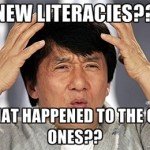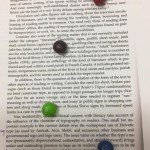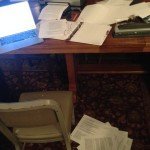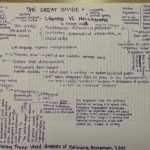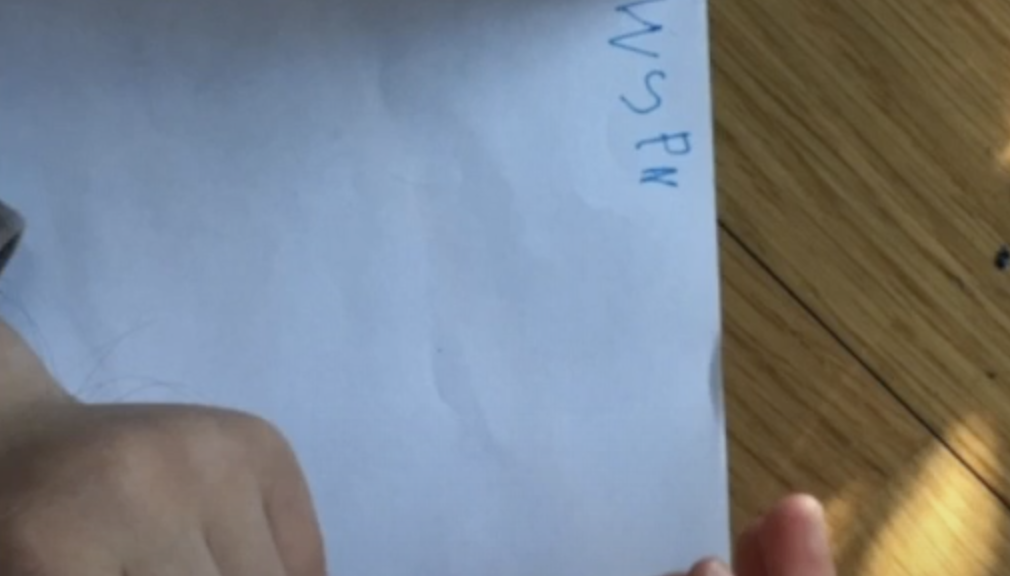
Welcome to English 632: Fall 2022
Hello everyone!
You’ve found our course website: welcome to Theories of Literacy (English 632) for fall 2022. I look forward to reading and researching together. Some thoughts about our work this semester:
 In one of the texts we’ll read, “Sponsors of Literacy,” Deborah Brandt offers a compelling and complex look at the concept of sponsorship. Through case studies, she demonstrates how literacy learning and usage is brought into existence by sponsors, and defines the term to mean “people, institutions, materials, and motivations involved in the process [of learning to read and write]” (167). Brandt’s essay provides a lens through which to think about “who or what underwrites occasions of literacy learning and use” (166). Because sponsors have the power to both encourage and discourage access to literacy practices—and the power to choose which practices are valued—sponsorship can lead to both positive and negative experiences with access to literacy and its uses. As Brandt points out, “Sponsors are a tangible reminder that literacy learning throughout history has always required permission, sanction, assistance, [or] coercion…” (167). Her observations point to the power institutions and educators hold over those attempting to gain access to literacy practices and to become active agents in the world. Brandt’s essay becomes particularly useful in examining and critiquing my role as a literacy sponsor, particularly as I design literacy experiences.
In one of the texts we’ll read, “Sponsors of Literacy,” Deborah Brandt offers a compelling and complex look at the concept of sponsorship. Through case studies, she demonstrates how literacy learning and usage is brought into existence by sponsors, and defines the term to mean “people, institutions, materials, and motivations involved in the process [of learning to read and write]” (167). Brandt’s essay provides a lens through which to think about “who or what underwrites occasions of literacy learning and use” (166). Because sponsors have the power to both encourage and discourage access to literacy practices—and the power to choose which practices are valued—sponsorship can lead to both positive and negative experiences with access to literacy and its uses. As Brandt points out, “Sponsors are a tangible reminder that literacy learning throughout history has always required permission, sanction, assistance, [or] coercion…” (167). Her observations point to the power institutions and educators hold over those attempting to gain access to literacy practices and to become active agents in the world. Brandt’s essay becomes particularly useful in examining and critiquing my role as a literacy sponsor, particularly as I design literacy experiences.
I’ve blogged about course prep before. I love designing learning spaces. But I also know that every time I design a course, I will most likely—even with the best of intentions—get in the way of students’ cool ideas. Every time I choose a reading, create an assignment, plan for the day, I know that I am both potentially opening up and limiting students’ literacies. As one of my former students, David, articulately shared in a draft: “I’ve learned to be more compliant with hoop-jumping in other classes. But beyond that, I’ve come to understand that even a situation like that may yield little nuggets of insightful gold if I approach the course with a more open mind, and regulate my own inquiries to the margins for further exploration when there is time, and the teacher isn’t looking…and certainly never on a test.” David makes a stunning statement. His willingness to imagine his own goals for literacy as marginal and “time allowing” can’t be the best he can hope for. And literacy sponsors, particularly college faculty, should consider how our assignments get in the way of fruitful, student-driven inquiries.
In our graduate course on literacy studies this semester, we’ll wrestle with the problems of literacy: valuing students’ right to their own language, thinking about how we push on the conservative nature of literacy learning in educational settings, and considering our own compliance as sponsors in institutional spaces. As much as I like to believe that I can open up possibilities for literacy learning, I’m very clear that I pick the readings, shape the conversation, and frame what and how we read and write. My hope is that you see our course as a possibility space: a place to pursue your questions, to see the readings and assignments as heuristics to play with, not algorithms to follow.
To start, I’d like to invite you to join our Perusall group. Perusall is a platform that allows us to read together collaboratively. Before we meet on Aug 25 (so we can jump into ideas), please read and annotate Sylvia Scribner’s “Literacy in Three Metaphors” in Perusall. Instructions for joining are on the Assignments page. Short walkthrough that explains how to comment below (created for the undergrad course, but how to comment is the same):
Please feel free to reach out with any questions: kjaxon@csuchico.edu. See you Thursday, Aug 25, 5:00-7:50, in Arts 206b. Kim
